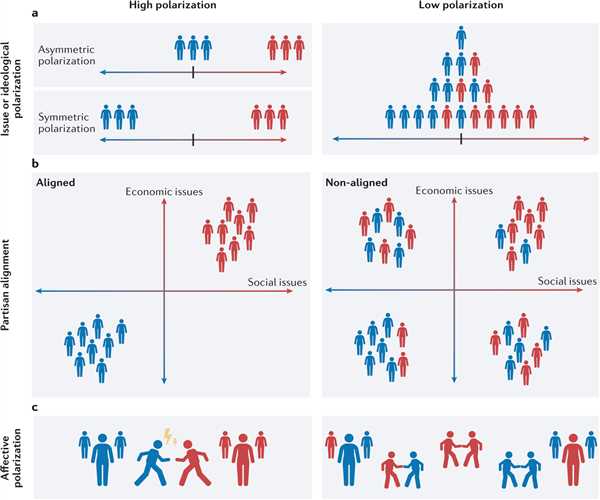Political polarization has a wide-reaching and profoundly negative impact on society. It is a major factor contributing to the breakdown in civil discourse and the increasing sense of tribalism and nationalistic fervour prevalent in many countries worldwide. This tribalism is particularly dangerous because it leads to a lack of compromise and collaboration between opposing sides, resulting in an inability to work together to solve common problems.

At its core, political polarization is a phenomenon in which the public increasingly clusters into two distinct camps based on political ideology. This can manifest in a variety of ways, including a sharp ideological divide between the two major political parties, a growing tendency for citizens to only pay attention to information sources that reinforce their existing beliefs, and a tendency for individuals to isolate themselves from those who do not share their political views. This polarization can lead to a situation in which each side views the other with suspicion and mistrust, creating an atmosphere of hostility and animosity.
This climate of mistrust and hostility can lead to a further breakdown of civil discourse and a greater sense of tribalism. This tribalism can be seen in the growing tendency for individuals to only pay attention to sources of information that affirm their own views, and the tendency for people to “tribalize” around specific political issues. This type of tribalism leads to a situation in which political opponents are viewed as enemies rather than dialogue partners, and a lack of willingness to engage in meaningful discourse or compromise. This can be particularly damaging to a functioning democracy, as it makes it difficult for any meaningful progress to be made.
The breakdown of civil discourse can also lead to a decrease in public participation in politics. When individuals feel that their voice is not being heard, or that the political process is too polarizing and tribalistic, they are less likely to participate in public discourse. This can lead to a decrease in voter turnout, a decrease in public engagement with the political process, and a decrease in the legitimacy of the political process.
The breakdown in civil discourse also has an impact on public trust in government. When individuals feel that their views are not being taken seriously, it can lead to a decrease in public trust in government institutions and the media. This can further create a sense of mistrust and hostility, leading to a further breakdown of civil discourse and an inability to work together to solve problems.
Finally, political polarization can lead to an increase in social division. When individuals are divided into two camps based on political ideology, it can lead to a decrease in empathy and understanding for those with different views. This can create a situation in which individuals are less likely to interact or engage with those who do not share their political views, further exacerbating the divide.